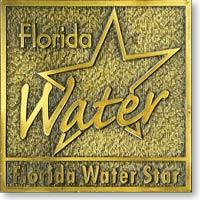Polk County is taking a lead in water conservation as nearly a dozen cities pass laws requiring new homes to be built more water efficient.
As the Polk Regional Water Cooperative (PRWC) works to develop alternative water supplies to meet the region’s projected water supply deficit, many of the PRWC’s 16 municipalities have adopted the ordinances.
The City of Eagle Lake became the 10th Polk County city to pass an ordinance since 2018 requiring newly constructed homes to meet the Florida Water Star℠ program criteria. Florida Water Star certifies new homes and commercial construction for water efficiency in appliances, plumbing fixtures, irrigation systems and landscapes.
Florida Water Star criteria requires that homes have water-efficient indoor fixtures and appliances, drought-tolerant plants and limits on the amount of high-volume irrigation such as spray and rotor heads in the landscape.

“Florida Water Star provides a low-cost option to address the limited water supply allowing cities to continue to expand while conserving our water resources,” said Robin Grantham, lead communications coordinator at the Southwest Florida Water Management District.
The other nine cities that passed laws are: Mulberry, Davenport, Bartow, Polk City, Lake Alfred, Lake Hamilton, Dundee, Haines City and Auburndale. Additional municipalities and entities have included significant portions of the program into local building codes.
More than 4,000 homes are anticipated to be built within the Polk County cities that have written Florida Water Star into code over the next year. Each of these homes will use up to 48,000 gallons of water less per year than traditional construction, equating to an estimated savings of 214 million gallons of water annually.
The program also means savings for the individual homeowner. Based on current water rates, homeowners will save approximately $530 on annual utility bills.
As the population continues to grow throughout Florida, Grantham hopes that Florida Water Star will become even more prominent.
“We hope to see the program expand to even more cities as it benefits not only water resources, but homeowners as well,” Grantham elaborated.
To learn more, visit FloridaWaterStar.com.
